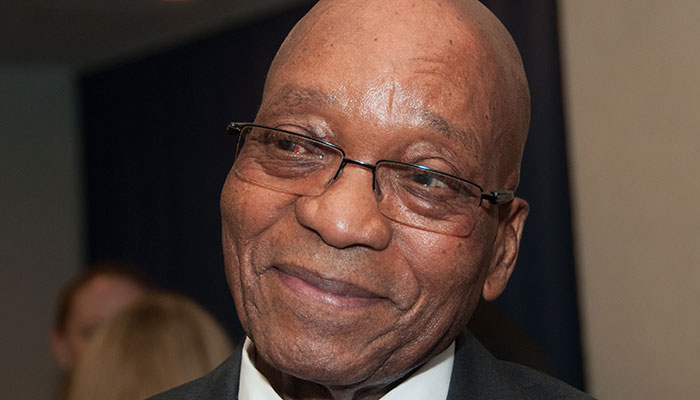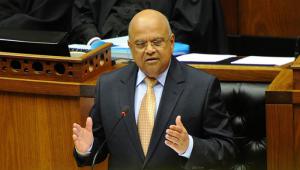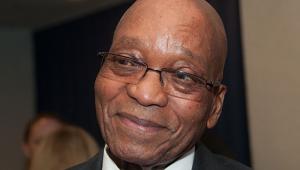web_jacobzuma_shutterstock_209414842.jpg

Embattled South African president Jacob Zuma. Shutterstock
A social media campaign dubbed #BlackMonday that went viral at the weekend called on South Africans to take to the streets donning black to protest against Zuma’s controversial cabinet reshuffle last week.
The scandal-hit president, whose administration has been beset by allegations of corruption and incompetence, replaced a number of ministers – including the well-respected finance minister Pravin Gordhan – with loyalists in what has been perceived as a bid to consolidate his power.
While the move may free his hand to implement popular policies, it has done little to allay widespread perceptions of corruption and illegitimacy, calm the rift within his party – the African National Congress – or stoke confidence in the economy.
Corruption Watch, one South African NGO that has supported the #BlackMonday protests, stressed that the target of the reshuffle was control of the treasury and other financial institutions of the state.
It called for another motion of no-confidence against Zuma: “The events have clearly established that renewal will not come from within the ranks of the ruling party, which has been captured by a narrow clique around the president and his corrupt business cronies.”
To those unhappy with recent events, support #BlackMonday, wear black in solidarity tomorrow, unite to uphold the values of our Constitution
— Corruption Watch (@Corruption_SA) 2 April 2017
#savesa is organizing mass a mass gathering on #BlackMonday at church square in Pretoria, starting at 9am. join us!
— Save South Africa (@_SaveSA) 2 April 2017
A series of demonstrations have been organised, with the largest expected in Johannesburg on Friday.
Meanwhile, ratings agency Fitch has warned the move could see South Africa’s credit rating downgraded.
Former finance minister Gordhan had acted as a key counterbalance to Zuma, blocking a number of his policies and earning himself a reputation for reliability and proper stewardship of the country’s finances.
With him out of the picture, Fitch said it expects sound money management, transparency and governance within state-owned enterprises to become less of a priority, meaning more rapid growth of risks.
A statement by Gordhan's replacement, Malusi Gigaba, at the weekend signalled a shift to more populist policies.
While he stressed he is committed to preserving the country's investment-grade credit rating, he also pledged to "radically transform" the country's economy and challenge inequality and the "powerful interests" of business, international investors and the wealthy.
Uncertainty continued to weigh on the rand and government bonds today. The currency had plummeted last week as investors, who saw Gordhan as the government’s most trustworthy figure, lamented his loss.
Speaking to PF International at that time, Julie Beckenstein, head of sub-Saharan country risk at analyst firm BMI Research, warned that any credit rating downgrade would hit the rand hard.
Fitch said a downgrade would be more likely if government debt could not be stabilised or the economy remained sluggish, or if financial risk or political instability increased.
While Zuma is popular in rural South Africa and benefits from a stalwart base of support within his own party, other factions of the ANC would not be averse to revolting against the party leader.
A number of the ANC’s top officials are said to have opposed the reshuffle. One of them, ANC treasurer-general Zweli Mkhize said it was the president’s prerogative to reshuffle his cabinet, but that he had “reservations” about how this was done.
These included a failure to brief the ANC leadership on the move, the “undesirable” consequences for the ANC’s public image and the economy, and the fact that a blind eye was seemingly turned to a number of ministers whose performance has been “unsatisfactory” and have come under heavy fire for incompetence.
For instance, Bathabile Dlamini, Zuma loyalist and social development minister, kept her post despite the fact that she could be personally culpable for a scandal that put millions of vulnerable South Africans’ benefit payments at risk, according to the country’s constitutional court.
Mkhize stressed that the interests of the country and the ANC should come above “any other narrow interest”.













